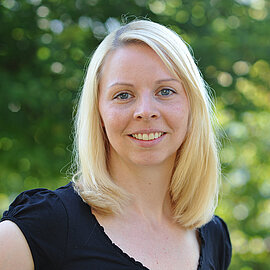Recent public discourse increasingly discussed the issue whether speculators in agricultural commodities markets are responsible for the worldwide rise in food prices and thus hunger in poor countries. Various renowned civil society organisations (CSOs) demand limits or even a full ban on trading of agricultural commodities by financial investors. IAMO director Professor Thomas Glauben and researcher Dr. Sören Prehn, in collaboration with the economic ethicists Professor Ingo Pies and Matthias Georg Will at Martin Luther University Halle-Wittenberg, have conducted a comprehensive literature review to contribute to clarifying the widely and publicly disputed facts.
The entering of new players in the futures markets for agricultural commodities who hedge agricultural producers against markdown risks has given rise to the suspicion that entailed financial speculation prompted rapid food price risesand thus exacerbates hunger in the world. Various civil society organisations (CSOs) in Germany commissioned studies which allegedly evidence those causal interrelations. They have mounted a joint public awareness campaign towards establishing regulatory barriers to market entry, such as transaction taxes or position limits. Several holders of economics chairs already contradicted relevant statements made by CSOs and even warn that the functionality of agricultural markets would impair without financial investors.
IAMO analysed 35 empirical studies together with the Chair in Economic Ethics at Martin Luther University Halle-Wittenberg in order to clarify whether the rise in financial speculation in recent years has increased the level or the volatility of agricultural commodity prices. The outcomes of the literature review show that the vast majority of research papers did not confirm the concerns about the impacts of speculation on agricultural commodities markets. 'Even if the literature still leaves many questions open, the current level of knowledge strongly suggests that the alarm raised by civil society should be classified as a false alarm. On the contrary, financial speculation may even contribute to making the agricultural markets function better’, said Thomas Glauben of the Leibniz Institute of Agricultural Development in Central and Eastern Europe (IAMO). The dramatic price events in 2007/8, 2010/11 and 2012 were rather caused by fundamental factors in the real economy. Economic ethicist Ingo Pies concluded: 'Those who wants to effectively combat hunger in the world have to take real-economy precautions to ensure that food supplies will match the envisaged increasing demands’.
Text: 2,856 characters (incl. spaces)
Further information
IAMO Policy Brief 9 and the underlying discussion paper titled 'Is financial speculation with agricultural commodities harmful or helpful? - A literature review of current empirical research’ are available on the below websites:
www.iamo.de/publikation/en/policybrief-9
www.iamo.de/fileadmin/documents/dp138.pdf
IAMO Policy Briefs
The publication series IAMO Policy Brief is published at irregular intervals and provides a platform for research findings and outcomes of the Institute of Agricultural Development in Central and Eastern Europe (IAMO) with social relevance to be communicated accessibly and entertainingly to a broad audience. Key target groups include political decision-makers, mass media representatives and the general public.
